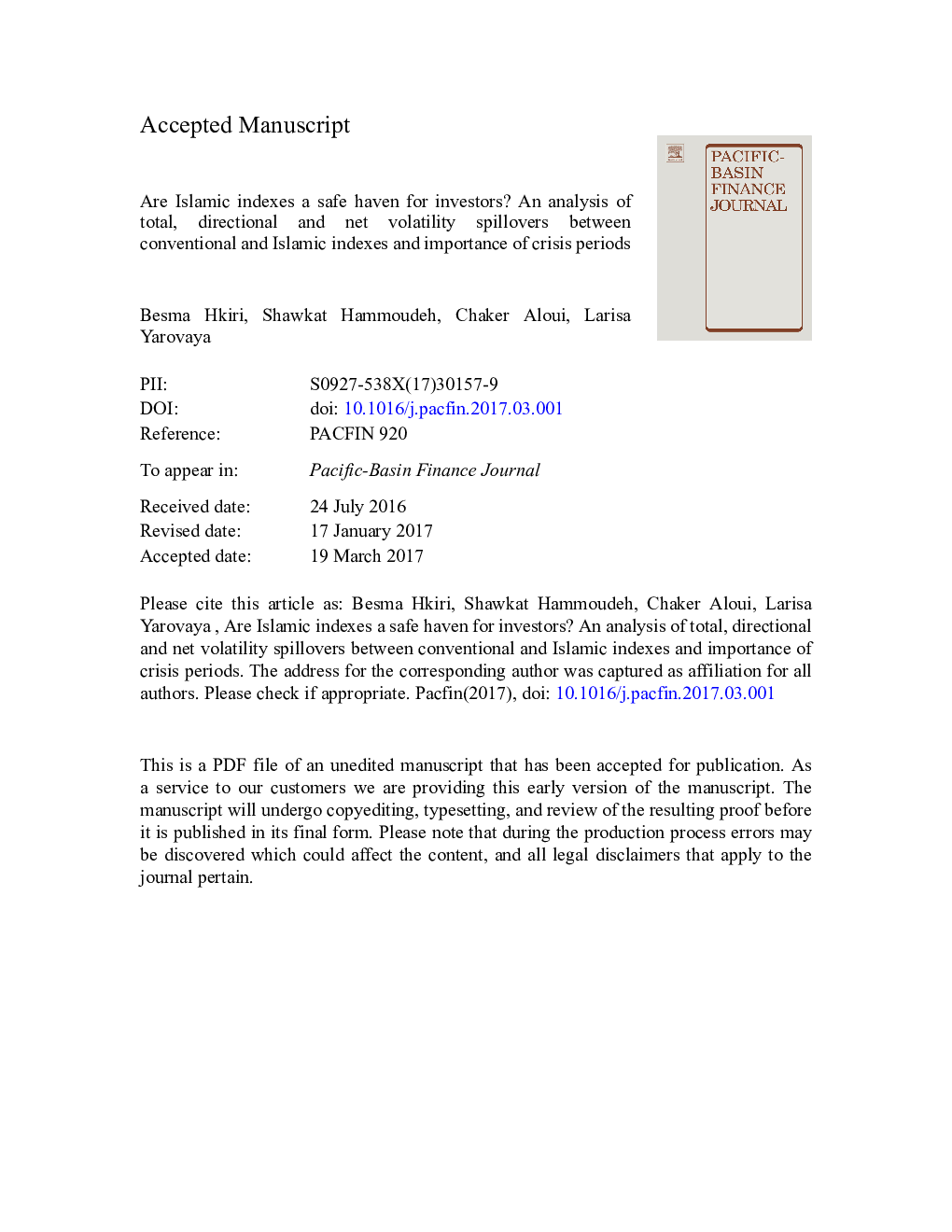| Article ID | Journal | Published Year | Pages | File Type |
|---|---|---|---|---|
| 5102318 | Pacific-Basin Finance Journal | 2017 | 66 Pages |
Abstract
We examine the decoupling and contagion hypotheses by testing them on the safe haven status of Islamic indexes through investigating the total, directional and net volatility spillovers across nine regional Islamic stock indexes and their conventional counterparts, using the generalized vector autoregressive framework. We use daily data covering the period 1999 to 2014 which includes various financial crises such as those that took place in Asia, Russia, Argentina, Brazil and the United States. The results show that global financial crises strongly affect the cross-market volatility. Although the contagion hypothesis is evident for both Islamic and conventional indexes, the findings also suggest the presence of a decoupling of the Islamic indexes from their conventional counterparts during turbulent periods. The results provide several useful implications for policy makers and portfolio managers seeking to diversify their portfolios and to hedge market risk, confirming that the Islamic financial indexes are a safe haven for investors during financial crises. Furthermore, paper reports significant time-varying patterns in the volatility spillovers for all the Islamic and conventional stock indexes and points out the stress transmitters and receivers.
Related Topics
Social Sciences and Humanities
Economics, Econometrics and Finance
Economics and Econometrics
Authors
Besma Hkiri, Shawkat Hammoudeh, Chaker Aloui, Larisa Yarovaya,
